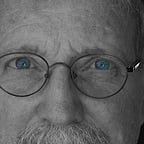The underappreciated evolutionary factors that bear on human health and impede effective modern health care
Evolutionary biologist Dr. Daniel David Lieberman of Harvard has written an important book.
I could not recommend this book more highly. I would make it required reading in medical school. The genus homo has been around on earth for more than 7 million years, after branching off from its primate forbears. Roughly 99% of that time has been spent in pre-agrarian hunter-gather mode, and it is that long, ancient period to which we remain biologically adapted. To the extent we fail to take this into account, we will stymie to a significant degree everything else we try to do to improve health care and human health.
“Our body’s evolutionary journey is also far from over. Natural selection didn’t stop when farming started but instead has continued and continues to adapt populations to changing diets, germs, and environments. Yet the rate and power of cultural evolution has vastly outpaced the rate and power of natural selection, and the bodies we inherited are still adapted to a significant extent to the various and diverse environmental conditions in which we evolved over millions of years. The end product of all that evolution is that we are big-brained, moderately fat bipeds who reproduce relatively rapidly but take a long time to mature. We are also adapted to be physically active endurance athletes who regularly walk and run long distances and who frequently climb, dig, and carry things. We evolved to eat a diverse diet that includes fruits, tubers, wild game, seeds, nuts, and other foods that tend to be low in sugar, simple carbohydrates, and salt but high in protein, complex carbohydrates, fiber, and vitamins. Humans are also marvelously adapted to make and use tools, to communicate effectively, to cooperate intensively, to innovate, and to use culture to cope with a wide range of challenges. These extraordinary cultural capacities enabled Homo sapiens to spread rapidly across the planet and then, paradoxically, cease being hunter-gatherers.
The principal trade-off between the novel environments we have created and the bodies we inherited has been mismatch diseases. Adaptation is a tricky concept, and there is no one environment to which the human body was adapted, but our biology remains imperfectly adapted to living at high population densities in permanent settlements amid the filth we create. We are also inadequately adapted to being too physically idle, too well fed, too comfortable, too clean, and more. Despite recent progress in medicine and sanitation, too many of us are getting sick from a wide range of diseases that used to be rare or unknown. Increasingly, these diseases are chronic noninfectious illnesses, many of which arise from having made too much progress. For millions of years, humans struggled to stay in energy balance, but billions of people are now obese from eating more calories (especially from massive doses of sugar) as well as from less physical activity. As we accumulate excess fat in our bellies while fitness dwindles, diseases of affluence are on the rise, especially heart disease, type 2 diabetes, osteoporosis, breast cancer, and colon cancer. In the United States, the rate of type 2 diabetes is rising even among teenagers, with nearly 25 percent now classified as having either prediabetes, diabetes, or other risk factors for cardiovascular disease. Economic progress has also brought more pollution and other potentially harmful environmental changes (too much, too little, too new) that are contributing to rising rates of mismatch diseases, such as certain cancers, allergies, asthma, gout, celiac disease, depression, and more. The next generation of Americans risks being the first generation to live shorter lives than their parents…”
Lieberman, Daniel (2013–10–01). The Story of the Human Body: Evolution, Health, and Disease (pp. 348–350). Knopf Doubleday Publishing Group. Kindle Edition.
